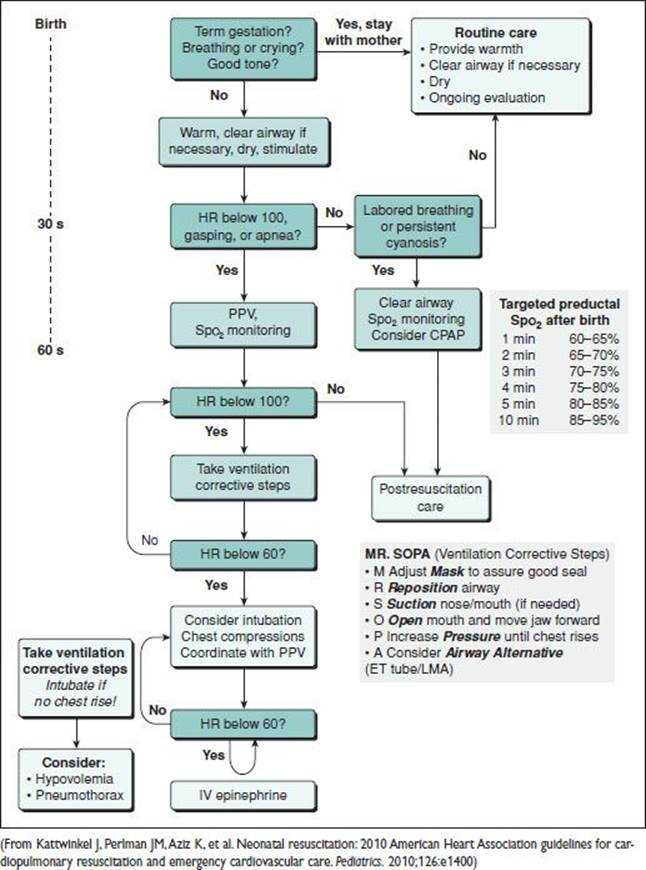
Passing the 7th edition NRP (Neonatal Resuscitation Program) exam is a crucial milestone for healthcare professionals working in neonatology. This exam assesses your knowledge and skills in providing life-saving interventions to newborns in distress. To succeed in this exam, candidates must have a thorough understanding of the latest guidelines and protocols outlined in the 7th edition of the NRP.
In this comprehensive guide, we will provide you with the answers to the 7th edition NRP exam. We will cover essential topics such as initial steps in neonatal resuscitation, effective ventilation techniques, chest compression guidelines, and special considerations for preterm infants. With these answers, you will gain the confidence needed to excel in the exam and become a competent provider of neonatal resuscitation.
Each question in the 7th edition NRP exam is designed to evaluate your ability to respond quickly and appropriately in critical situations. By understanding the correct answers, you will be equipped with the knowledge to make the best decisions for the newborn’s safety and well-being. This guide will not only help you pass the exam but also enhance your skills as a healthcare professional, ensuring the best possible care for newborns in distress.
7th Edition NRP Exam Answers: Your Comprehensive Guide
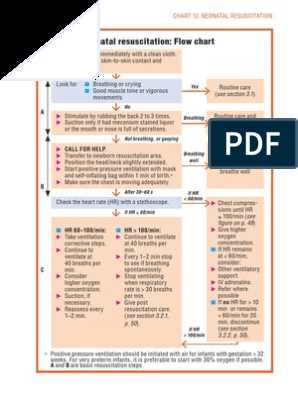
Preparing for the NRP exam can be a daunting task, especially with the constant updates and revisions. The 7th edition of the NRP exam brings new challenges and knowledge requirements. To help you succeed in your exam, this comprehensive guide provides you with answers to the most frequently asked questions and covers key concepts from the latest edition.
Understanding the changes in the 7th edition NRP exam is crucial for your success. This guide breaks down the updates and provides in-depth explanations for each topic. From the revised algorithm for newborn resuscitation to the updated guidelines for chest compressions, you will find all the information you need to ace your exam.
Key topics covered in this guide:
- Newborn resuscitation algorithm
- Assessment and initial steps
- Airway management
- Breathing support
- Chest compressions and coordinated care
- Medications and post-resuscitation care
Each topic is accompanied by detailed explanations, diagrams, and practice questions to reinforce your understanding. With this comprehensive guide, you will gain the confidence and knowledge needed to pass the 7th edition NRP exam with flying colors.
Understanding the 7th Edition NRP Exam: What You Need to Know
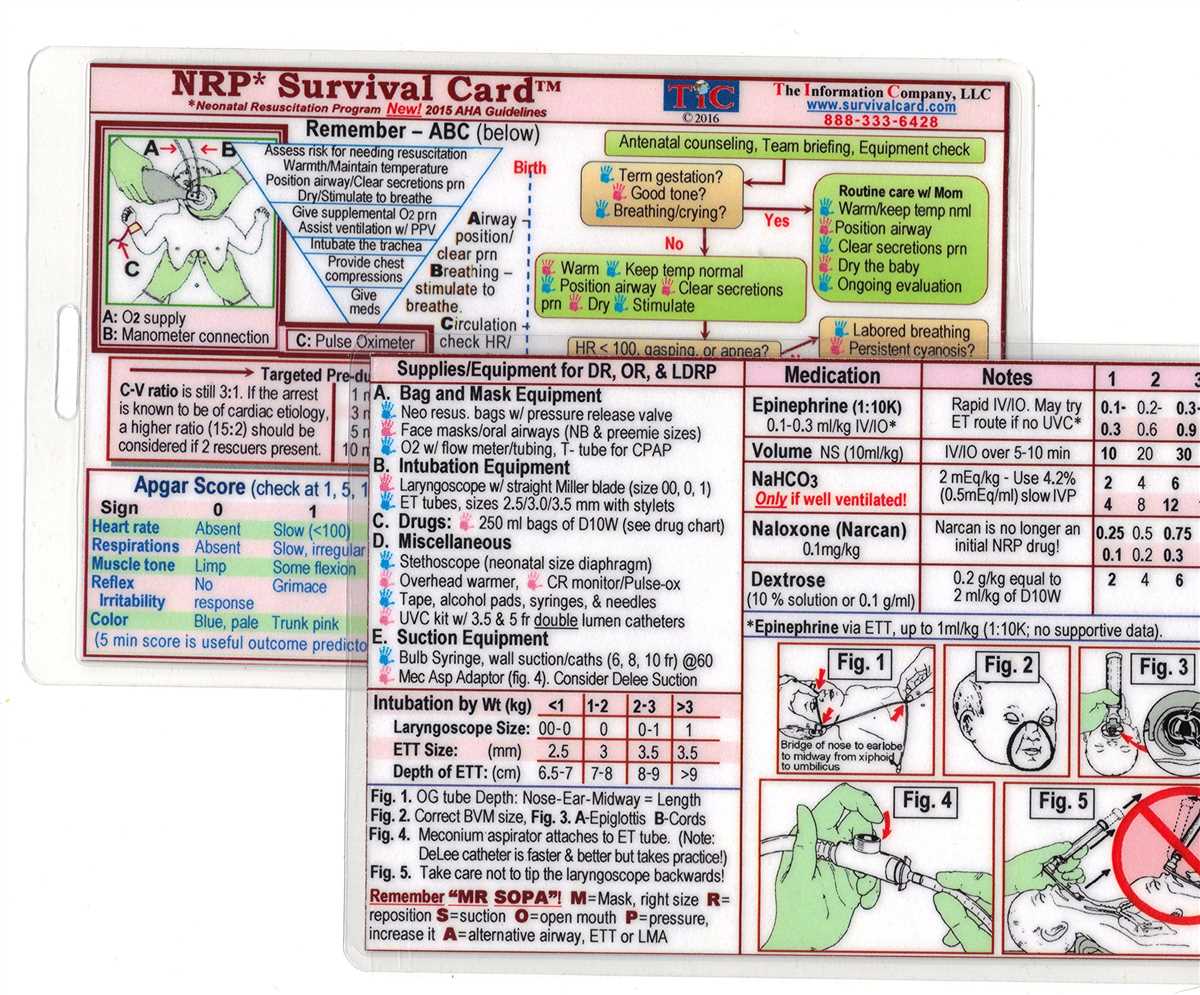
The 7th Edition Neonatal Resuscitation Program (NRP) Exam is an essential assessment for healthcare professionals involved in the care of newborns. It is designed to test their knowledge and skills in resuscitating and stabilizing newborns in various emergency situations. Understanding the exam format and content is crucial for success and ensuring the safety of newborns.
The exam consists of multiple-choice questions that cover various aspects of neonatal resuscitation, including the initial steps in resuscitation, positive pressure ventilation, chest compressions, medications, and post-resuscitation care. It assesses the healthcare professional’s ability to apply the latest guidelines and protocols provided by the American Academy of Pediatrics (AAP) in the management of newborn resuscitation.
To prepare for the exam, it is essential to thoroughly review the NRP textbook and attend the NRP course, which provides hands-on training and simulation scenarios. Familiarizing oneself with the algorithms, calculations, and specific steps involved in neonatal resuscitation is vital for success in the exam. Additionally, practicing with sample questions and participating in mock exams can help identify areas of weakness and improve overall performance.
During the exam, time management is crucial. It is important to read each question carefully, consider all options, and select the most appropriate answer based on the current guidelines and best practices in neonatal resuscitation. Understanding the rationale behind each answer choice can help eliminate incorrect options and increase the chances of selecting the correct answer.
In conclusion, the 7th Edition NRP Exam is a comprehensive assessment that evaluates healthcare professionals’ knowledge and skills in neonatal resuscitation. Proper preparation, including studying the NRP textbook, attending the NRP course, and practicing with sample questions, is essential for success. By understanding the exam format and content, healthcare professionals can ensure they are providing the best possible care to newborns in emergency situations.
Tips and Strategies for NRP Exam Preparation
Preparing for the NRP exam is essential for healthcare professionals who want to demonstrate their knowledge and expertise in neonatal resuscitation. This exam tests your understanding of the latest guidelines and protocols outlined in the 7th edition of the Neonatal Resuscitation Program (NRP) manual. To help you succeed in the exam, here are some tips and strategies:
1. Familiarize yourself with the NRP manual: Make sure you have a thorough understanding of the content and recommendations provided in the 7th edition NRP manual. Read through the manual multiple times, taking notes and highlighting key points. Pay close attention to the algorithms, guidelines, and explanations provided in the manual.
2. Review case scenarios: The NRP exam often includes case-based questions that require you to apply your knowledge to real-life situations. Practice answering case scenarios by considering the appropriate steps, interventions, and assessments for each scenario. The more you familiarize yourself with different scenarios, the better prepared you will be for the exam.
- 3. Practice with online resources: Utilize online resources, such as practice exams and quizzes, to test your knowledge and identify any areas of weakness. There are many websites and platforms that offer NRP exam preparation materials, including sample questions, flashcards, and interactive learning modules. Take advantage of these resources to enhance your understanding and retention of the material.
- 4. Attend a hands-on workshop: Consider attending a hands-on NRP workshop to gain practical experience and reinforce your understanding of the concepts. These workshops often provide opportunities for hands-on practice with mannequins and simulations, allowing you to apply your knowledge in a realistic setting. Additionally, these workshops may provide valuable insights and tips from experienced instructors and colleagues.
In conclusion, preparing for the NRP exam requires a comprehensive understanding of the NRP manual, practice with case scenarios, utilization of online resources, and attending hands-on workshops. By following these tips and strategies, you can feel more confident and prepared for the exam, increasing your likelihood of success.
An In-depth Look at the Changes in the 7th Edition NRP Exam
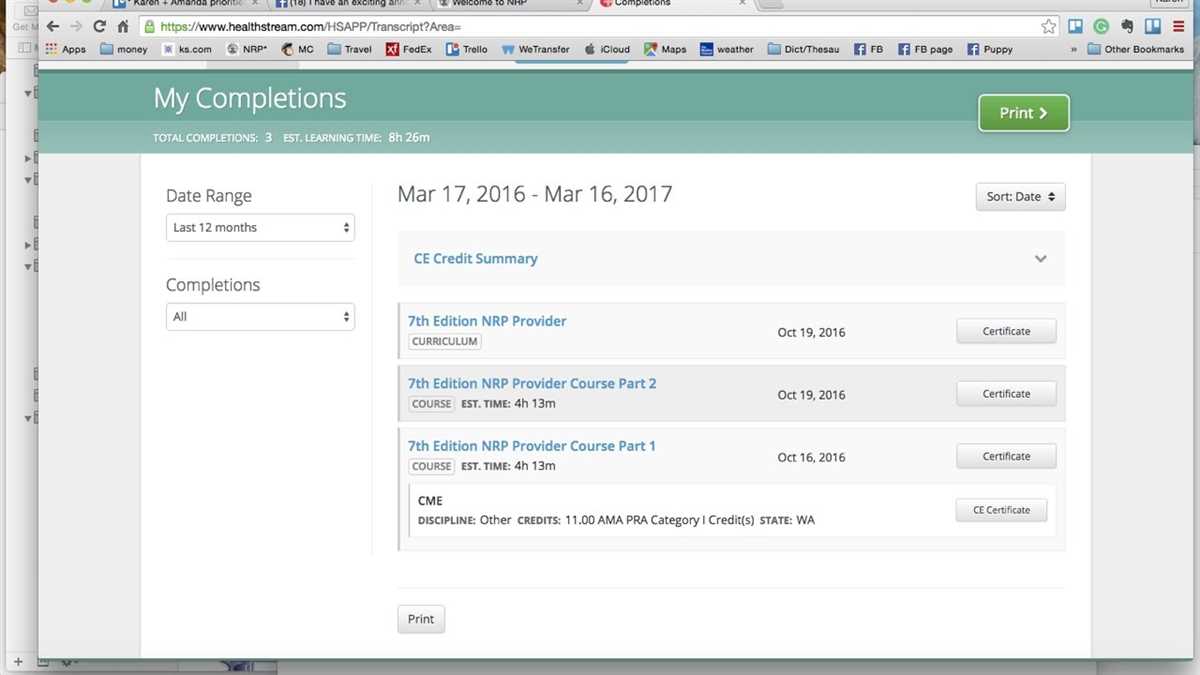
The 7th edition of the Neonatal Resuscitation Program (NRP) exam brings about significant changes that aim to improve patient outcomes and enhance the skills of healthcare providers in managing neonatal emergencies. These changes reflect the latest evidence-based practices and recommendations in neonatal resuscitation.
One notable change in the 7th edition NRP exam is the emphasis on effective teamwork and communication during resuscitation. Healthcare providers are now expected to demonstrate their ability to work collaboratively in a simulated resuscitation scenario. This includes clear and concise communication, role assignment, and situational awareness. These skills are crucial in ensuring the smooth and efficient delivery of care during neonatal emergencies.
- Another key change is the integration of new algorithms and guidelines for neonatal resuscitation. The 7th edition NRP exam covers the updated steps and actions for both basic and advanced resuscitation. This includes the use of positive pressure ventilation, chest compressions, and medications. Healthcare providers are required to demonstrate their proficiency in following these algorithms and guidelines accurately and efficiently.
- The 7th edition NRP exam also places a greater emphasis on the importance of practicing resuscitation skills regularly. Healthcare providers are expected to demonstrate their ability to assess and manage common neonatal emergencies, such as meconium-stained amniotic fluid and newborns with respiratory distress. This requires a strong foundation of knowledge and hands-on skills in order to make prompt and appropriate clinical decisions.
- Furthermore, the 7th edition NRP exam includes updated information on the use of technology in neonatal resuscitation. Providers are expected to demonstrate their proficiency in using and interpreting data from monitoring devices, such as pulse oximeters and capnographs. This allows for more accurate assessment and management of the neonate’s condition during resuscitation.
In summary, the 7th edition NRP exam introduces significant changes that focus on teamwork, updated algorithms, regular practice, and the utilization of technology in neonatal resuscitation. These changes aim to improve the skills and knowledge of healthcare providers in order to enhance patient outcomes during neonatal emergencies.
Key Concepts and Topics Covered in the 7th Edition NRP Exam
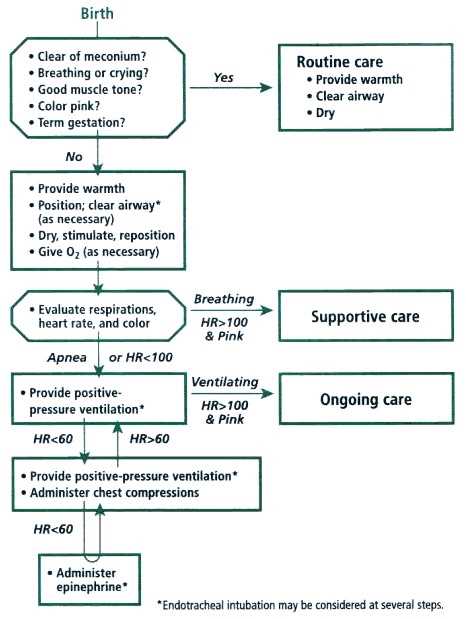
The 7th edition NRP (Neonatal Resuscitation Program) exam is a comprehensive assessment that evaluates the knowledge and skills of healthcare providers in the field of neonatal resuscitation. It covers a range of key concepts and topics that are essential for ensuring the safety and well-being of newborns.
1. Resuscitation algorithms: The exam includes questions on the updated NRP algorithm, which provides a systematic approach to neonatal resuscitation. This includes steps and interventions for initial assessments, chest compressions, ventilation techniques, and medication administration.
2. Assessment and monitoring: The exam tests knowledge of how to assess and monitor the newborn’s respiratory effort, heart rate, oxygenation, and perfusion. It covers the use of different tools and equipment, such as pulse oximeters and cardiac monitors, to ensure accurate assessments.
3. Airway management: The exam assesses understanding of various airway management techniques, including the use of bag-mask ventilation, intubation, and suctioning. It covers indications, contraindications, and proper techniques for each intervention.
4. Medications: The exam includes questions on the use of medications during neonatal resuscitation, such as epinephrine and volume expanders. It assesses knowledge of appropriate dosages, administration routes, and indications for medication use.
5. Team dynamics and communication: The exam evaluates the ability to effectively communicate and work as a team during neonatal resuscitation. It covers topics such as roles and responsibilities of team members, effective communication strategies, and debriefing techniques.
6. Ethical considerations: The exam includes questions on ethical considerations in neonatal resuscitation, such as decision-making processes, informed consent, and cultural considerations. It assesses understanding of ethical dilemmas and the ability to make appropriate decisions in complex situations.
The 7th edition NRP exam is designed to ensure that healthcare providers have a thorough understanding of the latest guidelines and best practices in neonatal resuscitation. It evaluates both theoretical knowledge and practical skills, making it essential for professionals working in neonatology and delivery room settings.
Common Mistakes to Avoid in the 7th Edition NRP Exam
The 7th Edition NRP Exam is an important assessment for healthcare professionals working in neonatal resuscitation. While preparing for this exam, it’s crucial to avoid common mistakes that can lower your score and hinder your ability to provide effective care for newborns.
1. Lack of familiarity with the 7th Edition guidelines: One of the most common mistakes in the NRP exam is not being fully acquainted with the latest 7th Edition guidelines. It is essential to review these guidelines thoroughly and understand the changes and updates to ensure that you are providing the most current and evidence-based care.
2. Not practicing hands-on skills: The NRP exam evaluates both theoretical knowledge and hands-on skills. Many candidates make the mistake of focusing solely on theoretical concepts and not spending enough time practicing and honing their skills in neonatal resuscitation techniques. Regularly practicing skills such as bag-mask ventilation, chest compressions, and umbilical catheter placement is essential to perform well in the exam.
3. Failure to communicate effectively: Communication is a vital aspect of neonatal resuscitation, and the NRP exam assesses your ability to communicate and work as part of a team. Students often make mistakes in relaying information, giving clear instructions, and coordinating actions with other healthcare professionals. Practicing effective communication skills during simulated scenarios can greatly improve your performance in this area.
4. Inadequate understanding of equipment: Knowing how to properly operate and troubleshoot equipment is crucial in neonatal resuscitation. Candidates often make mistakes in handling and setting up equipment such as infant warmers, pulse oximeters, and suction devices. It is essential to familiarize yourself with the equipment and practice using them in simulated scenarios to prevent any errors on the exam.
5. Failure to prioritize and make quick decisions: Neonatal resuscitation requires quick decision-making and the ability to prioritize interventions based on the newborn’s condition. Candidates often struggle with time management and fail to make timely decisions. Developing critical thinking skills and practicing decision-making under time pressure can help you avoid this common mistake.
By avoiding these common mistakes and thoroughly preparing for the 7th Edition NRP Exam, you can improve your chances of achieving a successful outcome. Regularly reviewing the guidelines, practicing hands-on skills, improving communication, understanding equipment, and honing decision-making abilities will contribute to your overall success in the exam and enhance your competence in neonatal resuscitation.